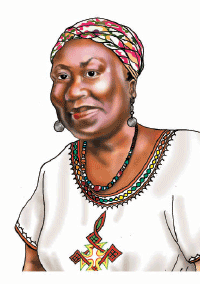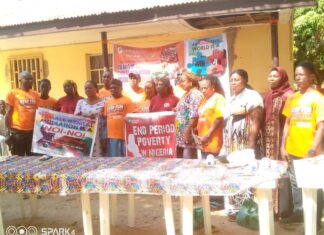The current budget padding saga rocking the House of Representatives is one that is exposing the depth of corruption that exists in the land, not only among the elite ruling class, but even among the general populace. It is alleged that Yakubu Dogara and a few other House officers “padded” the 2016 budget to the tune of about N40 billion, an allegation made by the erstwhile Chairman of the House Committee on Appropriation, Abdulmumin Jibrin, after he was relieved of his position by Dogara. Jibrin was frontal in his attack on Dogara and his men: he officially presented his case against them directly to the Economic and Financial Crimes Commission (EFCC), as well as unofficially through a series of posts on the social media, leading to an outburst of public condemnation of the accused House members.
In the public’s view, in general, Dogara’s response was like adding insult to injury. First, he said he did not consider padding as an act of corruption; later, he declared that he had “never heard of the word padding”. While the majority of Nigerians who have commented on the issue express outright condemnation of the act, some others have stood in defense of Dogara, insisting that no crime had been committed. Among this latter group are members of a religious organisation who met in Abuja about a week ago and discussed the matter, given that they were planning to invite the embattled House Speaker for one of their activities. An argument ensued during which the overwhelming majority was of the opinion that Dogara had done nothing criminal or illegal; only a couple of members felt that as a Christian organisation, they were to be concerned not merely with issues of legality, but primarily of morality.
In his write-up on the same issue in the Punch of Tuesday, August 9, 2016, Professor Niyi Akinnaso states: “Lawyers may disagree as to whether this practice constitutes a crime. However, no one is in doubt that it is inappropriate, indeed illegal.”
It should trouble us in a fundamental manner that people, including lawyers, would actually believe that there is nothing criminal or illegal in what has been done. Meanwhile, let us recall that the act of padding was carried out after the budget had been passed on the floor of the House, out of the view of and completely unknown to the vast majority of members – that is, somewhere between that House floor and the President’s office, to which the budget was to be returned. It was a clandestine operation. How could that not be an act of illegality?
Many Nigerians are quick to point out that we are not the only nation with corrupt politicians – and indeed, they are right. After all, human beings are generally prone to selfishness and doing evil, as long as it serves some personal interests. The case might thus be cited of the reality of “pork barrel spending” or “earmarks”, similar to budget padding, which equally exists in the United States (U.S.) legislative set-up. It is a system through which a member of Congress gets federal funds allocated to his or her constituency for some specific project, primarily for the purpose of winning re-election. It is said that in 2010, the U.S. federal budget might have been padded to the tune of some $7 billion through pork barrel spending.
The major difference between the Nigerian budget padding and American pork barrel spending is that the latter is not carried out in secret. That is, the money is not added after the budget had already been approved on the floor of the Congress; it is the amount agreed upon that gets transmitted to the President. It too is immoral, in my humble opinion, but at least everything is concluded in plain view of all the members. A congressman or woman who is up for re-election would typically “negotiate” the inclusion of some amount of money for a local project in his or her constituency in a bill being sponsored by another colleague – that is, in exchange for supporting the bill. The costs associated with the execution of that bill are thus inflated. To many people, that is politics – the trading of interests and negotiation of benefits. Clearly, the U.S. system is at least one rung further up the integrity ladder than ours; but really, is that the best we could ever hope for?
Why is there generally such a low expectation of morality in politics? Why is truth almost anathema to political considerations? Politicians contesting elections make promises they have no intention of keeping, and the people to whom those promises are made do not expect them to be kept either – possibly the reason they ensure that they extort as much money as possible during the campaigns, knowing that hardly anything tangible could be expected from the politicians once they got into office. It is as if both the rulers and the ruled connive to perpetuate this cycle of unfulfilled aspirations.
Akinnaso too, earlier mentioned, lays part of the blame on the citizens, claiming that we mostly talk glibly about corruption and the damage it has cost us as a nation, but “without expressing outrage”. Our expectations of our leaders are far too low; maybe that is why their misdeeds do not elicit the appropriate level of feelings of outrage in us. That needs to change.

- Advertisement -
- Advertisement -
Must Read
CEE-HOPE mobilises three communities in Lagos, Abuja to combat GBV
CEE-HOPE mobilises three communities in Lagos, Abuja to combat GBV
As part of the recent 16 Days of activism...












